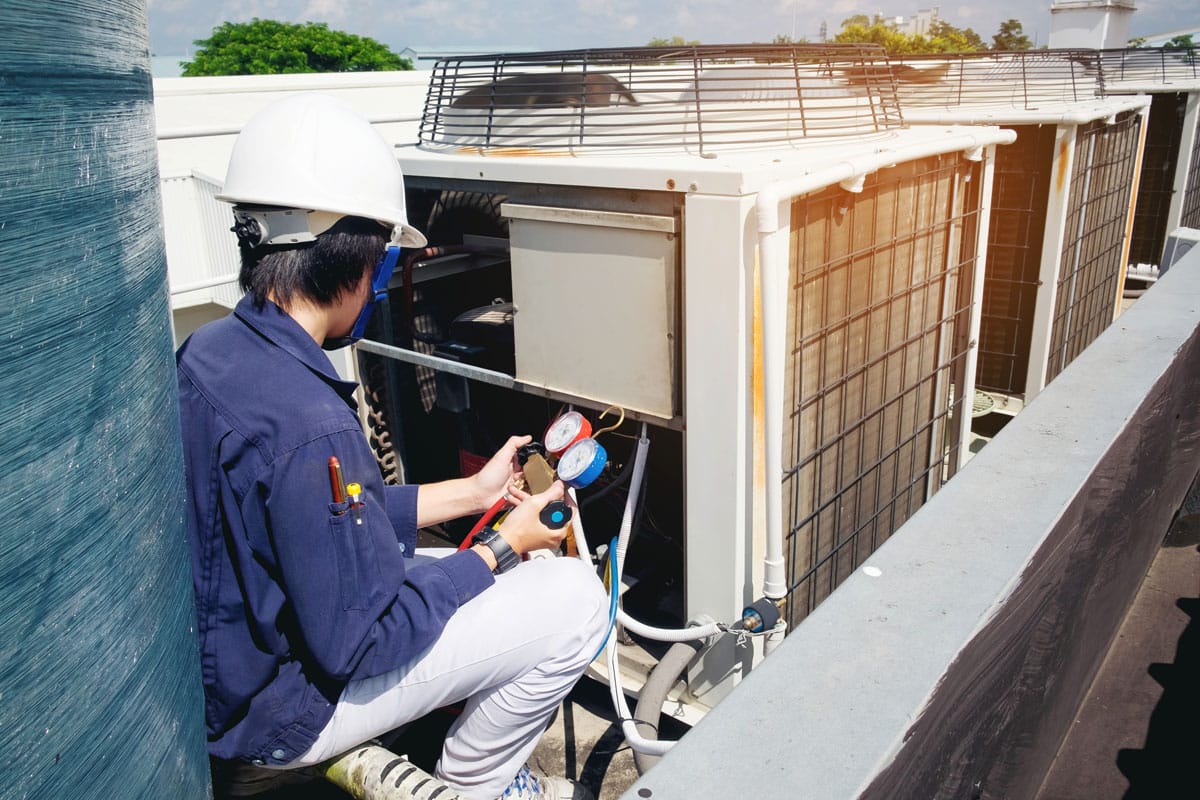
Choosing the appropriate HVAC (Heating, Ventilation, and Air Conditioning) system requires a lot of consideration because it has a significant impact on the comfort of people’s homes and workplaces as well as the cost of living and doing business. Whether you are repairing the existing unit or installing a new system, this decision will determine energy costs and comfort in your home. This guide will explain in detail how you can select the right HVAC system for your home or business.
1. Understanding the need of an HVAC system
Depending on the space for which you are getting the heating or cooling system, you must comprehend your requirements.
Before we discuss the benefits of HVAC systems in more detail, evaluate your heating and cooling needs. Consider the dimensions of the area provided, the climate in the region, and your comfort customization preferences personally.
• Room Size and Capacity: Measure the square footage of the area you wish to heat or cool. This will help determine the capacity of the HVAC system required, depending on your needs. If the unit is small, it may not suffice to maintain comfort, and if it is large, it will turn on and off too often, resulting in inefficiencies.
• Climate Considerations: If you have a place where you are facing very high or very low temperatures then it will be required to install a stronger system. This might just be adequate for a less severe climate.
2. Types of HVAC Systems
Some of the HVAC systems available in the market include; these are well understood to enable one to choose the right one to be used.
• Split Systems: These are the most common, and both indoor and outdoor units exist. They are ideal for homes with ducts, and some of them are highly efficient.
• Ductless Mini-Split Systems: Perfect for homes without ductwork, these systems are energy-efficient and can afford zoned heating and cooling.
• Heat Pumps: These systems offer heating and cooling, and they are some of the most efficient climate control systems, especially if the climatic conditions are moderate.
• Packaged Systems: These are home systems ideal for homes that do not have a basement and they have all their parts outside.
3. Energy Efficiency and Cost
First and foremost, then, energy efficiency should be the best criterion when selecting an HVAC system. Not only does it make a certain amount of ecological sense to have a better running system, but it also puts a dent in your energy costs.
• Check the SEER and AFUE Ratings: When looking at these systems seek ones with high Seasonal Energy Efficiency Ratio (SEER) for cooling and high Annual Fuel Utilization Efficiency (AFUE) for heating. A higher rating in this case means a better energy performance of the buildings.
• Consider Initial Costs vs. Long-Term Savings: For example, more effective systems, however, tend to be more costly initially, but the savings from electricity bills would be exemplary in the long run.
4. Noise Levels
Sound is critical especially if the system is placed around areas that include bedroom or a lounge.
• Check Decibel Ratings: Most of the contemporary HVAC systems have been developed in such a manner that they do not make loud noises. In this case, try to find rooms, houses or apartments with low decibel number make ensures quiet environment.
• Ductless Mini-Splits for Quiet Operation: If noise reduction is an issue then ductless mini-split systems are some of the quietest heating and cooling systems to install.
5. System Size and Compatibility
Size of the HVAC system matters a lot when it comes to the efficiency of the equipment.
• Avoid Oversized or Undersized Units: It will if you have an oversized system will turn on and off constantly, making you have inconsistent temperatures as well as putting more stress on the system. On the other hand, if a heating unit is too small, there is a big probability that it will fail to provide the right kind of heat.
• Consult with a Professional: You can consult the HVAC professional for a load calculation to arrive at the correct size in relation to the area of the house, the insulation among other factors.
6. Smart Features and Compatibility
With today’s model of HVAC, significant new features have been added to the system to make them efficient and comfortable than before.
• Smart Thermostats: Smart thermostat should be compatible with other systems which will enable you to monitor it remotely for change of temperatures and also enable you to program temperatures.
• Zoning Capabilities: There are some models which allow using the zones, and using these options you can heat or cool some parts of your house separately.
7. Budget and Financing Options
Budget remains a very important factor in the decision making process.
• Compare Costs: First of all, it is Heating And Air Experts LLC necessary to compare the price at which it is possible to purchase the system initially and the cost of installation, possible additional costs for the maintenance of efficiency.
• Explore Financing and Rebates: It is also important to note that often the manufacturers and the utility companies will provide financing with incentives or rebates if a new HVAC system is installed. Such can help cover the initial cost implications.
Conclusion
Selecting the appropriate HVAC system requires the evaluation of factors such as; the size of your house, the required heating and cooling capacity, efficiency as well as cost. So, if you have the time and want to save time then definitely the best option is to look for an accountant and select a right system which makes you comfortable, most efficient and cost effective in longer run. So, always bear in mind that the best HVAC system is the one that serves your purpose and maintains your building’s climate the way you want.
With this guide, you are now well prepared to make a right choice on how to select the HVAC system of your choice.
